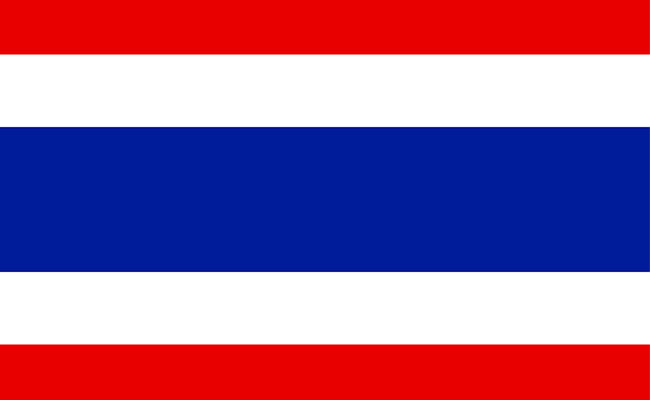Most people don't relocate or travel to Thailand expecting to have a baby. But hey, life happens.
- Perhaps you relocated as an expat looking forward to retirement in the sun, but ended up finding romance, marriage and eventually a child.
- Perhaps you flew to Thailand for holiday and didn't realise that your baby would be arriving prematurely.
- Perhaps you sowed your oats on holiday and, nine months later, have found out that those oats became a baby.
Whatever your situation, you might be wondering about the status of your child.
There are a number of scenarios to cover, including a baby born to foreign nationals in Thailand, a baby born to one foreign national and one Thai national, and a baby born to foreign nationals with permanent residency.
And then there's babies born to Thai nationals living overseas, which also isn't quite as straight forward as one might think.
So let's look at these different scenarios and determine what status your child will inherit as a result of being born in Thailand, or to a Thai parent(s) outside of Thailand.

A Child Born to Foreign Nationals
Unlike some countries in the world, if you are both foreign nationals and your child is born in Thailand, your child will not gain Thai citizenship, residence, or any other rights given to a Thai national.
It doesn't matter if you both have work permits, business visas or any other type of official document, your child will not gain Thai citizenship or related rights.
This is because Thailand follows a nationality doctrine called “jus sanguinis”, which roughly translated means ‘right of blood'.
When the baby is born in a Thai hospital, there will be some notation on the birth certificate that stipulates the status of the child and the fact that the child is not of Thai nationality/citizenship.
There is, however, one exception to this rule…
A Child Born to Foreign Nationals with Permanent Residency
If a foreign national couple, both with permanent residency, have a biological child, the child will be granted Thai citizenship.
Permanent residency is quite difficult to obtain, and therefore there are probably very few Western foreign couples who would fall into this category. If you do fall into this category, it will be interesting to hear from you and your experience with this process.
A Stateless Child (Born to Foreigners)
There is one other circumstance where a child born of foreign parents in Thailand may be able to gain Thai citizenship. And that is if a child is born stateless.
By stateless we mean not belonging to a state/country, so having no official citizenship. In this situation, the parents would need to seek legal advice and go through a number of hoops to obtain this for the child.
Indeed, if we look to the Hill Tribes of Thailand we see a case in point. Many of these communities have gone through and are still going through this process of registering stateless children.
Many of the Hill Tribe peoples can trace their bloodline to outside of Thailand. However, their ancestors settled in Thailand due to displacement or territorial change over the years.
Many of these people do not have official documentation such as birth certificates or passports. This makes it extremely problematic to obtain Thai citizenship for a child, because not only is the child stateless but so too are they. They may not be able to prove their origin either.
You may remember last year when 13 children from the Wild Boars football team got stuck in a cave in Chiang Rai province (northern Thailand). Many of these children were children of Hill Tribe families. After their ordeal, those without permanent status were awarded Thai citizenship.
A Child Born to a Foreign National & Thai National
In the case of a child born to a Foreign national and a Thai national in Thailand, the child automatically gains Thai nationality. This status will be stipulated on the birth certificate provided by the hospital. The parents can then go forward and obtain the child a Thai passport.
For more information on obtaining a passport for your Thai child, please read this post here.
In the case that a Thai national is married to a foreign national and living overseas, the child will be granted Thai nationality due to the nationality of the Thai parent. However, this doesn't happen automatically by descent. To be registered as a Thai national, the child will need to obtain a Thai birth certificate from the Thai embassy in that country.
Without a Thai birth certificate, the child cannot be registered on a Thai House Registration document (Tabien Baan – ทะเบียนบ้าน), or get a Thai passport (หนังสือเดินทาง) or ID card (บัตรประชาชน) issued. Note that Thai children aged 7 years and above are required to have identification cards, so no need to worry about that until a number of years down the line.
A Child Born to Thai Nationals
Of course, it goes without saying that a child born to Thai nationals – even if those Thai nationals are living abroad, or if one is living in Thailand and the other is living abroad – will be eligible for Thai nationality.
However, even if both parents are Thai nationals, they must still go to the embassy in that foreign country and obtain the Thai birth certificate for their child. Only then will their child officially gain their Thai nationality.
—
I think I've pretty much covered all the common scenarios. But if you're circumstances are not covered in this post and you have a question about a child's status, leave your question below and I'll get to it as soon as I can.
More Tips for a Better Life in Thailand
Send Money to Thailand:
Use Transferwise. It is fast, cheap, and gives you the market exchange rate. Me and the majority of my readers are using it.
Get Good Health Insurance:
Start with a quick quote from Cigna. Then compare my other recommendations here.
Improve Your Thai Skills:
Learning Thai makes life here easier and more fun. I use Thaipod101. It is free to get started & easy to use.
Protect Your Online Privacy:
A VPN protects you against hackers and government snooping. I always use one. You should too. Read why here.
Last Updated on



Rich says
Also, we would not want him to have to do national service. Would getting him registered mean he would have to do that? Or are there ways to avoid it?
Thanks
Mar 13, 2024 at 10:15 pm
TheThailandLife says
Mar 13, 2024 at 10:56 pm
M says
Oct 05, 2023 at 2:31 pm
TheThailandLife says
Oct 05, 2023 at 7:17 pm
Jay says
Jan 29, 2024 at 1:29 am
TheThailandLife says
Jan 29, 2024 at 7:29 pm
Teknik Industri says
Jun 06, 2023 at 5:07 pm
TheThailandLife says
Jun 06, 2023 at 5:32 pm